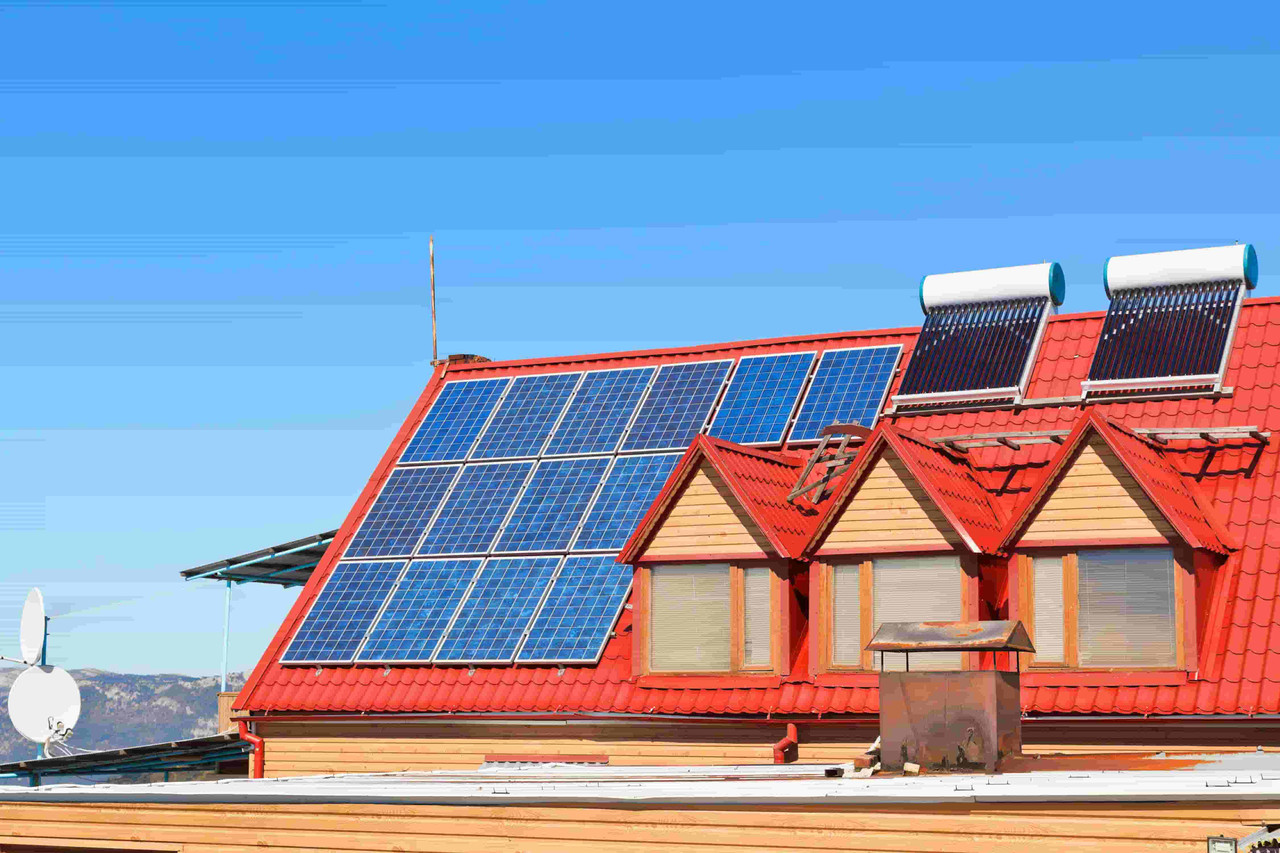Common Uses for Small Solar Panel Kits
How to use small solar panel kits to easily go solar
Are you interested in adding solar to your RV, van, boat, or small cabin, but get intimidated sifting through a sea of options to piece together a package of compatible components? Solar panel kits are a great, headache-free way to go solar and are perfect for many small scale, off-grid applications.
What are the different solar panel kits available to me?
Solar panel kits make it easy to ensure that you have all the parts you need and that they will safely and efficiently work together. Renogy has a range of different solar panel kits for those interested in installing solar on their own.
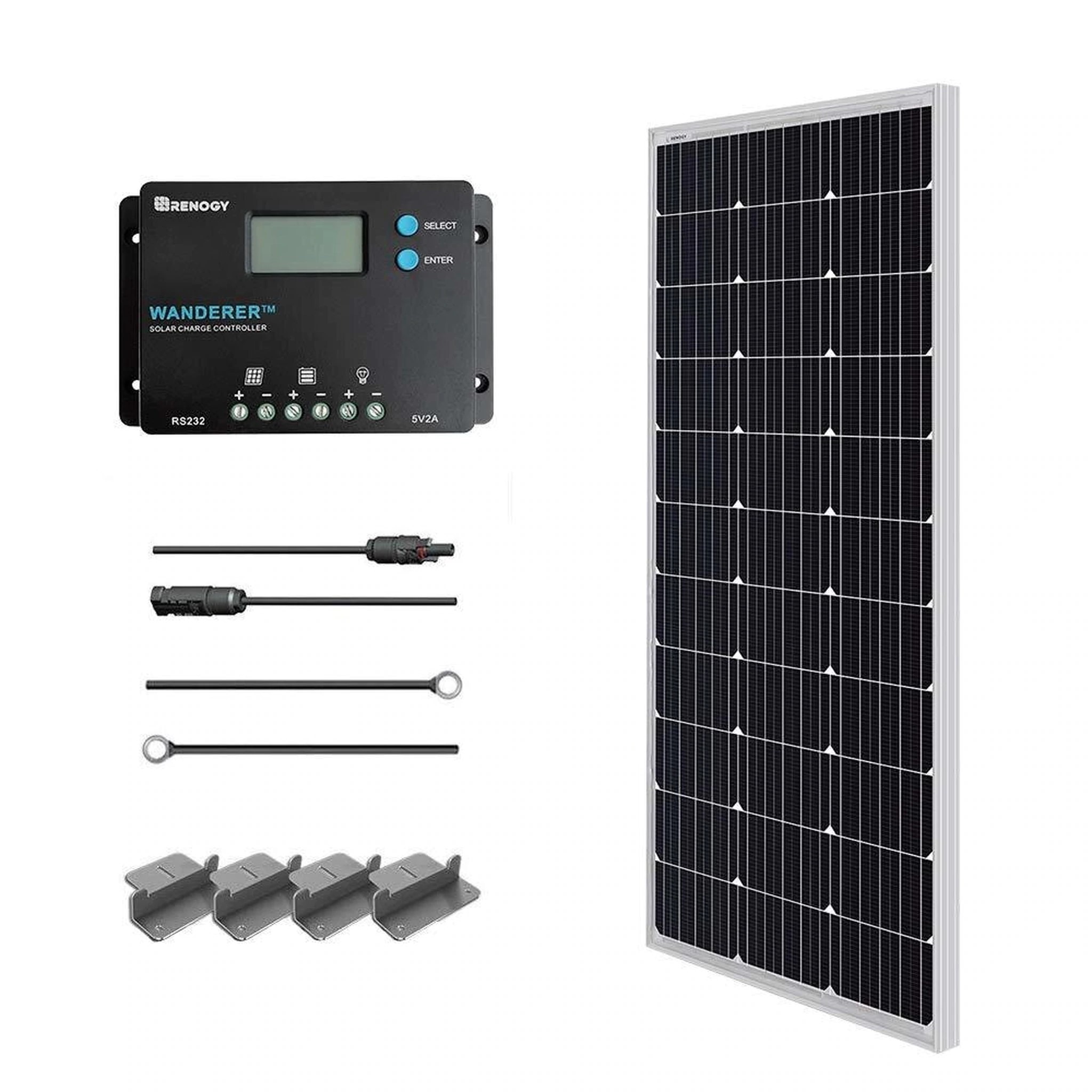
Starter Kits are designed for beginners in mind and are available with easy to handle, small solar panels rated for systems between 50 and 400 watts.
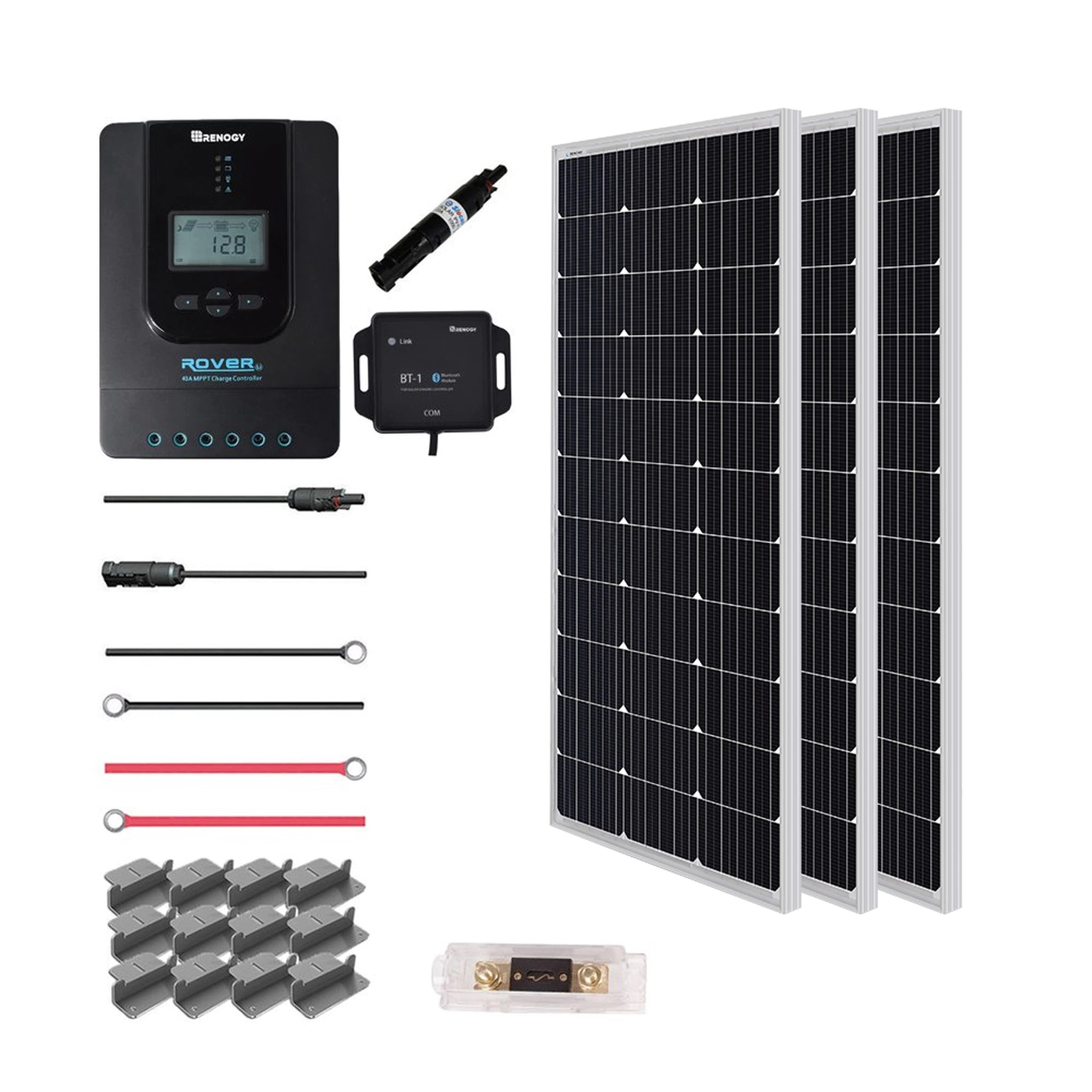
Premium Kits include 100W Eclipse solar panels for systems between 100 and 800 watts.
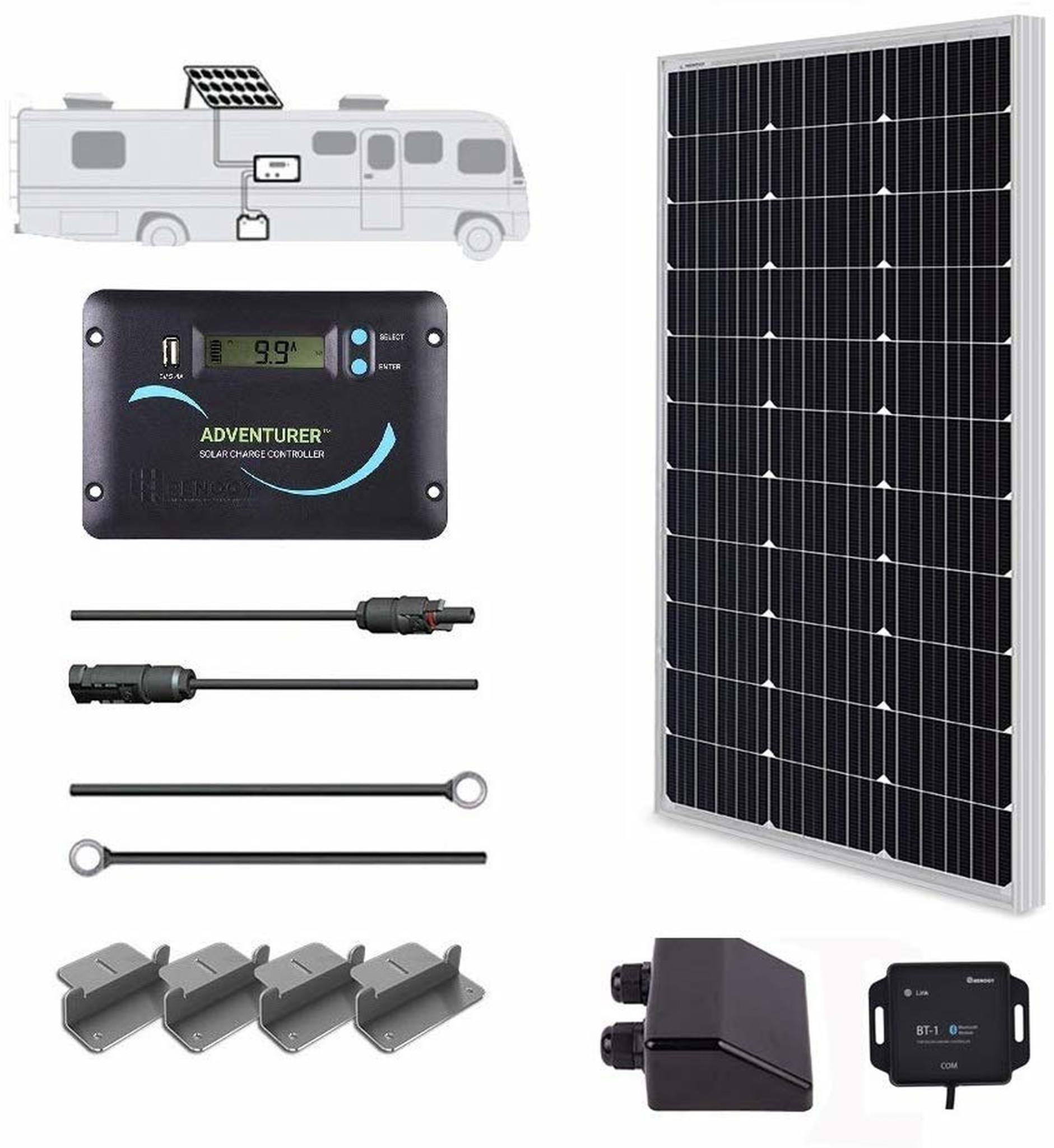
RV/Van Kits are the perfect addition to any RV, motorhome, or mobile application. 100 to 400 watts systems are available, and they also have folding suitcase and flexible solar panel options.
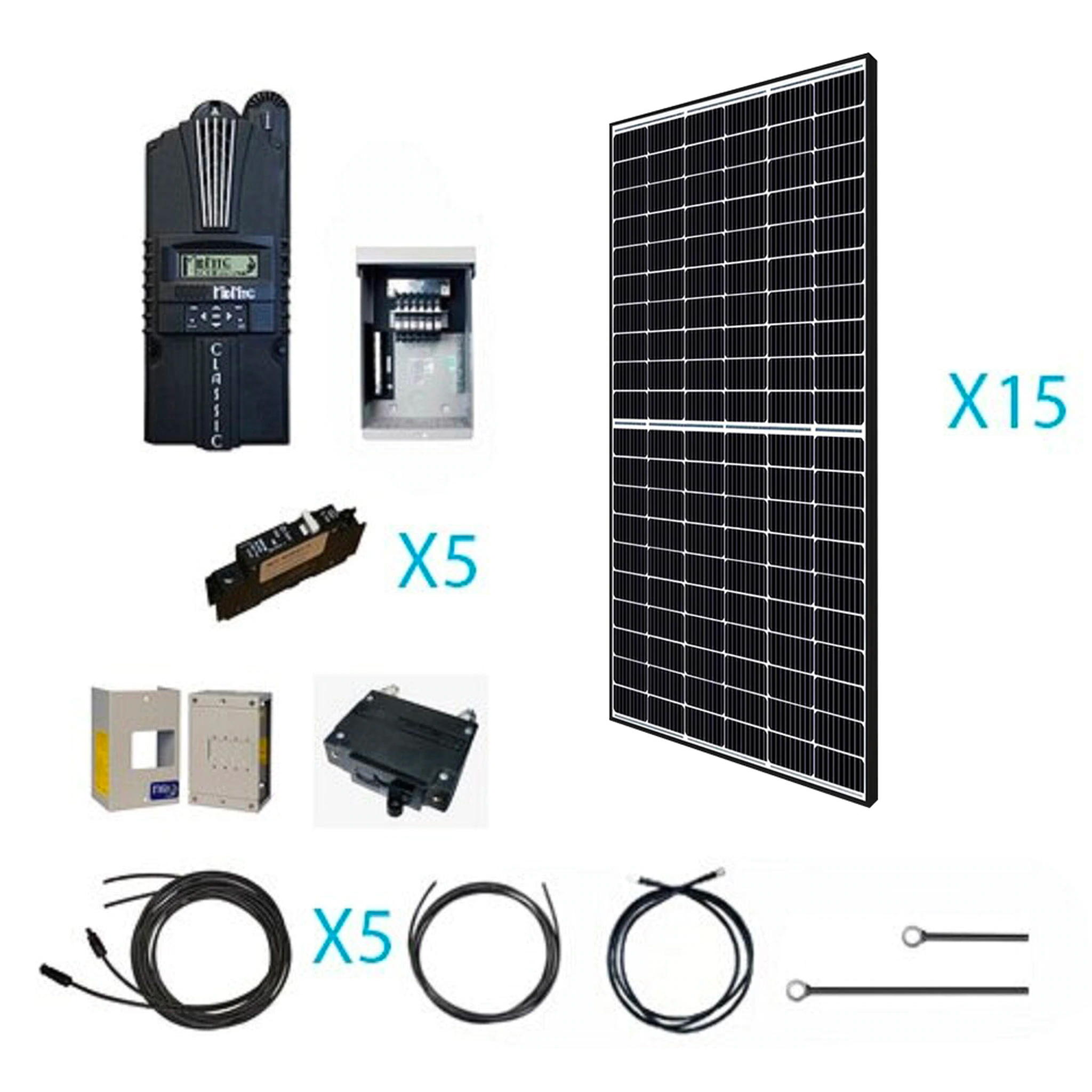
Cabin and Shed Kits are designed for autonomous use away from the grid. These off-grid kits come with everything to power up a cabin, tiny home, or other small scale building. They come in sizes ranging from 1000 watt to 4500 watts.
What’s included in solar panel kits? What do I still need to buy?
Renogy’s solar panel kits include solar panels, charge controller, wiring and cables, and mounting hardware. You’ll need to purchase an inverter and deep cycle batteries in order to complete your system.
Are kits best for on-grid or off-grid applications?
You’re probably already familiar with the terms on-grid and off-grid. On-grid means you’re tied to the grid and are able to access that power when your solar panels don’t produce enough energy. Off-grid means you’re producing all the power you need for your home. Because on-grid installations typically require installation by a licensed contractor (check with your local jurisdiction) solar panel kits work best for smaller, DIY off-grid applications.
Off-grid vs. on-grid
- Off-grid solar systems (stand-alone power systems) Off-grid systems utilize batteries to store energy produced from solar panels. Systems must be sized and designed to fit a variety of needs throughout the year, especially in the winter when there are fewer sunlight hours. If you live in a remote area without reliable and affordable access to the grid, off-grid solar can be a great way to meet your energy needs.
- On-grid systems (grid-tie solar systems) On-grid systems are the most common and widely used systems. You do not need battery storage and can simply use energy from your panels when they are producing. Then, when your panels aren’t producing power, such as at night or when it’s too overcast, you can tap into the grid. Excess solar that’s produced is often credited to your utility’s account with a mechanism known as net metering. Then you can use that power at night without paying extra.
- On-grid systems with battery storage With the decreasing costs of batteries, more and more people are choosing to add battery storage to their on-grid projects to be able to take advantage of the benefits of both on- and off-grid systems, such as having energy access during blackouts and having to pay for less energy from the grid.
How much power do I need to power a small home?
The Renogy solar power calculator is a great tool that makes it a quick and easy process to help determine your specific needs. The solar sizing calculator allows you to input information about your lifestyle and energy needs to help you decide on your solar panel requirements. You’ll just need to know what total watts your electronics will consume, how long you plan on running the devices, your charge controller efficiency, and average sun hours per day. The solar panel calculator will then be able to tell you the minimum and recommended system size, as well as the recommended battery output.
How many solar panels do I need to power a small house?
Most data suggests that a typical 2,000 square foot American home consumes approximately 11,000 kilowatt-hours annually. So, when we divide our total consumption by the expected output of one solar panel, we see that roughly thirteen solar panels of this size would be enough to power a home of that size. If you have a smaller home, have fewer appliances to power, or are powering an RV, your energy needs will be much lower, and you’ll need fewer panels.
Do the cabin and home solar panel kits provide enough power for me to go off-grid?
For the cases of this example, let’s say you’re looking at the 1,200 watt solar panel kit for your home or cabin. The kit includes four 320 watt solar panels.
Let’s assume that each panel gets around 8 hours of sunlight per day on your rooftop. A 320 watt panel receiving 8 hours of sunlight per day will produce almost 2.5 kilowatt-hours per day. If we multiply this by 365 days per year, we get a solar output of about 900 kilowatt-hours annually. In short, each panel will provide 900 kilowatt-hours each year, which would be enough power to handle limited energy needs or be used in case of emergencies. For larger energy needs, we’d recommend the 2,500 or 4800 watt kit.
The 2,500 watt solar panel kit will allow you to power mid-tier luxury items and can be considered a primary power source in most cases or can provide autonomous backup power in case there is no sun. The 4,800 watt solar panel kit will keep you prepared for emergencies, some social events, and support multiple people power consumption.
Why do some kits have 12v panels and others have 48v panels?
As you’re shopping you’ll come to learn that panels and inverters typically come in either 12, 24, or 48 volt options. Most RV’s and boats typically use 12V battery banks, so people usually stick with 12V panels. 12 volt systems used to be the standard for homes, but today, many larger home systems are rated at 24v or 48v.
12v systems are good for many DIY solar scenarios, such as RVs/motorhomes/vans, and camper trailers. If you have higher energy needs, such as in a tiny home or cabin, and your energy needs are over 2,500 watts, go for a 48 volt system. Large off-grid houses often use 48 volt systems. The 1,200 watt solar panel kit for homes and cabins includes 12 volt panels, and the 2,500 and 4,800 watt solar panel kits include 48 volt panels.
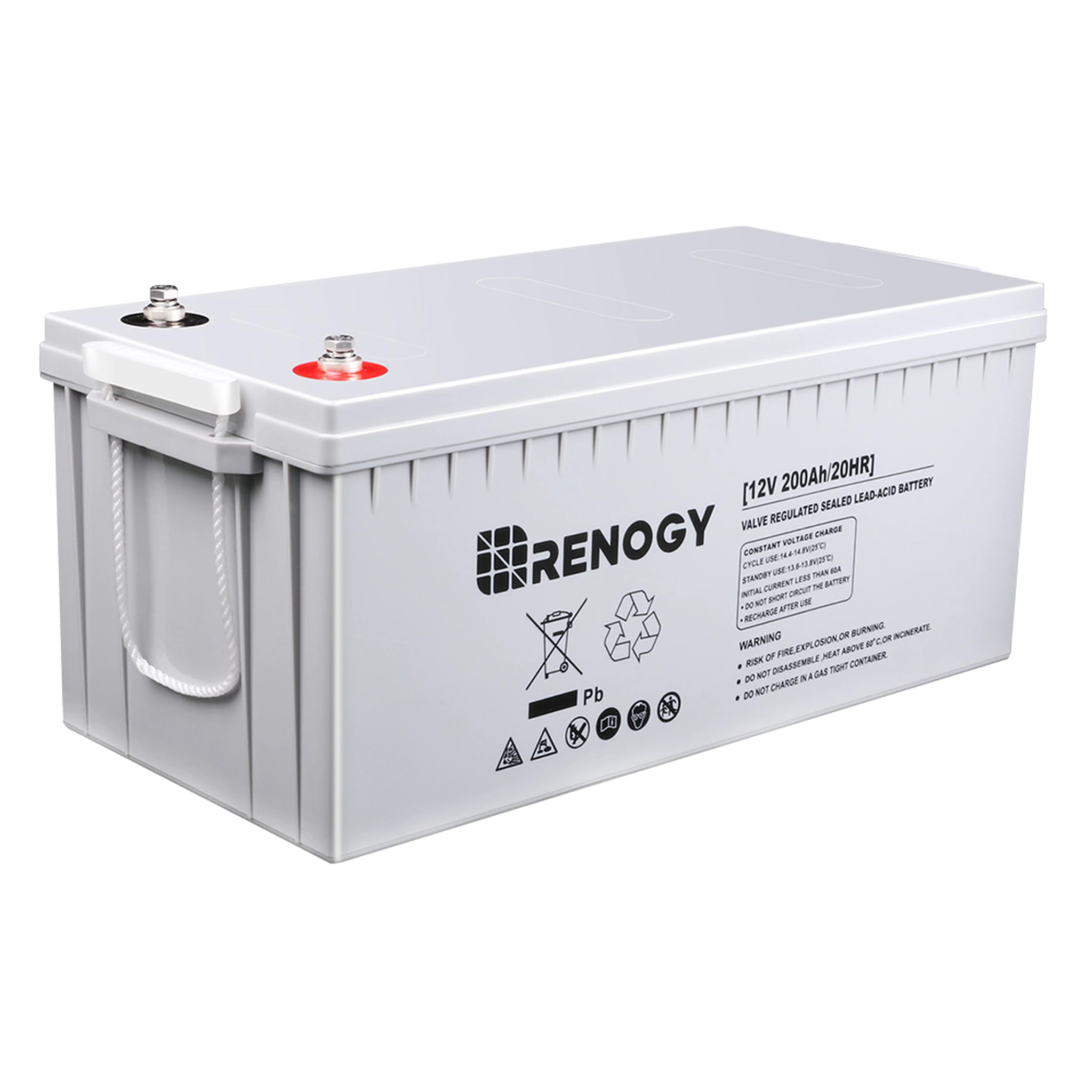
How many batteries do I need for my system?
As mentioned before, you’ll need a battery bank in addition to your solar panel kit. The amount of battery storage you need is based on your energy usage. Energy usage is measured in kilowatt hours. So if you need 200 watts for 8 hours per day, then your energy usage is 1.6kWh per day. Your energy needs may greatly differ from that depending on what you’re powering in your household or how big your space is. For more information about deep cycle batteries, refer to our blog post.
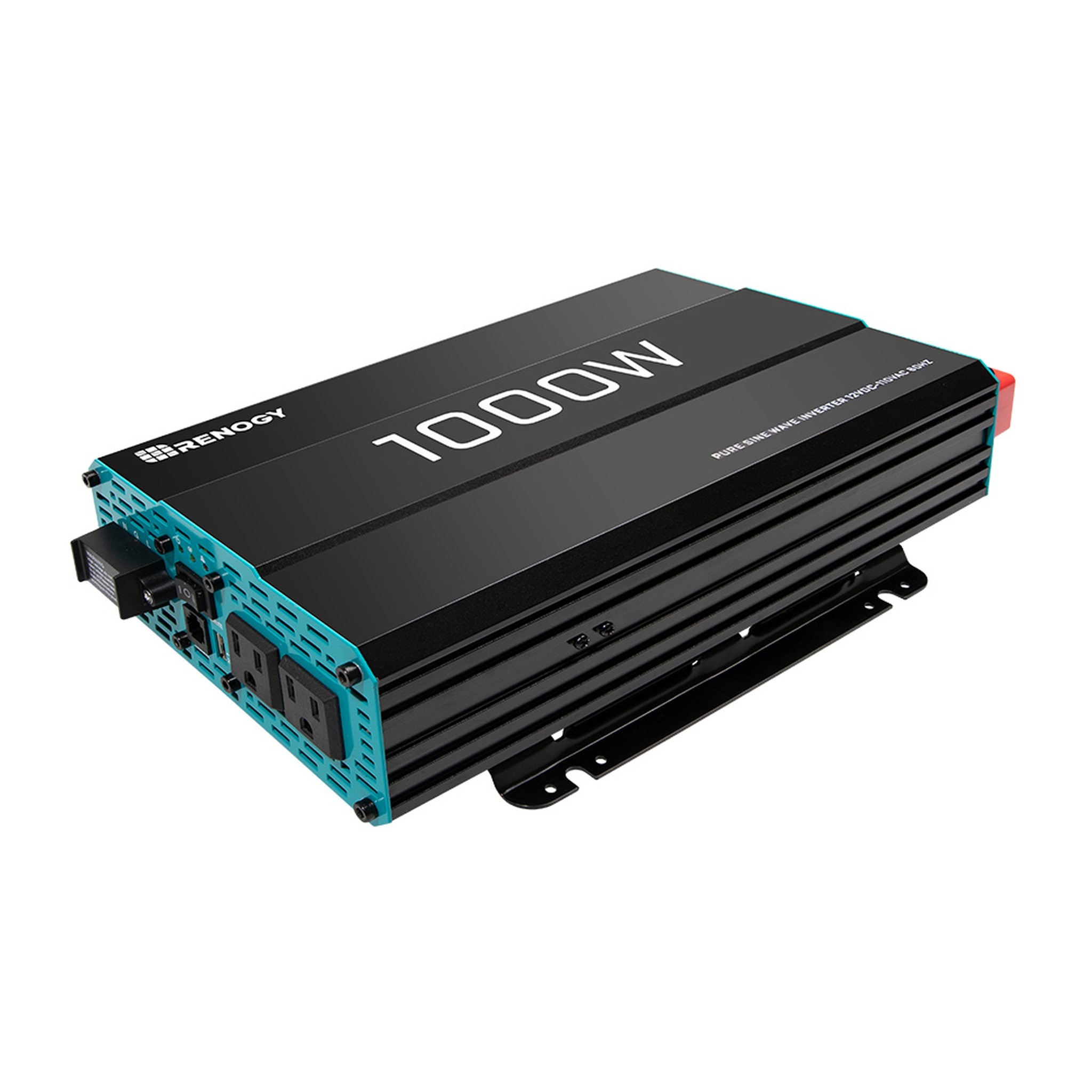
What kind of inverter should I buy for my system?
Inverters are a key part of a solar system and serve as the gateway between the photovoltaic system and the devices drawing energy from your system. They turn the direct current (DC) output into alternating current (AC), which is the standard used by all commercial appliances. Renogy sells a range of pure sine wave inverters of varying capacities. For more information about inverters, refer to our blog post on selecting a solar inverter.
Conclusion
Purchasing a solar panel kit is a great way to easily go solar, no matter if you’re living in an RV, tiny home, or van. By packaging the key components together, including solar panels, charge controller, wiring, and mounting hardware, you’ll be able to save time shopping and start harnessing the power of the sun in no time.

